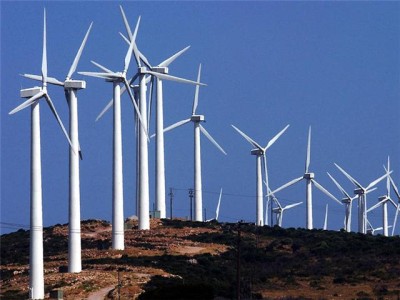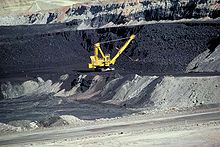Politicizing Science
The Trump Administration is doubling down on its efforts to silence politically inconvenient science.
We knew about the Administration's disdain for scientific evidence from the beginning but the situation has only continued to deteriorate. The campaign against objective science is now becoming embedded within the government. Far more than its predecessors, the Administration has embarked on a campaign to impose political control on science within the government and in government funding, wherever the scientific evidence is at odds with Administration policy. Here...
CONTINUE READINGIs CEQA the problem?
Developing a better understanding of how land-use law and housing production interact in California
On Friday, the Governor signed a package of housing bills intended to help address the soaring costs of housing in many metro areas in California. Follow-up coverage of that bill package has (rightly) indicated that those bills are a drop in the bucket in terms of addressing California’s housing crisis. One theme that emerges in that coverage and also coverage of other CEQA legislation (as well as a recent op-ed by two economists) is an argument that the California Env...
CONTINUE READINGThe Green Backlash Against Trump
Trump has sparked resistance in many forms from many directions.
There are clear signs of a strong backlash against Trump. Consider support for environmental organizations. A report in February indicated that giving to the Sierra Club was up 700% over the same period of the preceding year, as part of a major trend across environmental NGOs. According to the same report, other environmental groups were seeing a similar surge. According to Grist, as of April, there had also been a big upswing in the number of people joining or donating ...
CONTINUE READINGRyan Zinke’s Troubling Remarks Undercut Dept. of Interior’s Core Mission
Comments to Oil Trade Association Attack Agency Staff, Dismiss Environmental Safeguards
At a recent meeting of the American Petroleum Institute (the national oil company trade association), Interior Secretary Ryan Zinke made clear some of his plans for the Department of the Interior. According to AP reporting, he called almost 1/3 of employees disloyal, said he plans to speed up oil and logging permits, and revealed a plan to remove agency staff and decisionmaking from Washington, DC. These statements and proposals misleadingly and inappropriately attack ...
CONTINUE READINGUnder the Radar: What States are Doing About Energy and Climate
Despite Trump, renewable energy is firmly rooted and growing across the nation.
What happens in Washington gets a lot of attention. You probably also follow what’s going on in your own state. But it’s very hard to know what’s happening at states across the country. In an effort to get a better sense of that, I’ve explored state activity on climate change and energy in a series of posts. This wasn’t a fifty-state survey, or even a statistically valid random sample. But it does indicate what’s happening in a range of states, some Repu...
CONTINUE READINGA Mighty Wind
The Great Plains are wind power’s firewall of Republican support in Congress.
You might find this a bit surprising, but wind power has a solid political base in key Republican states. It’s a case of economics outweighing politics. Here are the top five states for wind power: Rank State Installed Capacity* 1 Texas 20,320 2 Iowa 6,911 3 Oklahoma 6,645 4 California 5,65...
CONTINUE READINGRenewables and Republicans in the Rustbelt
Republican Governors in Ohio and Michigan have given support to renewables. Indiana, not so much.
When people think of the rustbelt, they think of places like Cleveland, Gary, and Detroit. Ohio, Indiana, and Michigan form a cluster of states under solid Republican control, Republicans controlling the governor’s mansion and both houses of the legislature. All three states went for Trump, with varying margins. The three states also have commonalities in terms of energy. Historically, they have all relied heavily on coal. Yet, according to the National Renewable Ene...
CONTINUE READINGZinke’s Report Recommends Downsizing or Loosening Restrictions in 10 National Monuments
Report Lacks Details on Boundaries but Recommends Management Changes to Permit Wider Range of Uses
Late last night, the Washington Post reported that Secretary Ryan Zinke had recommended making changes--by downsizing and/or by loosening restrictions--to a total of 10 national monuments. The list of monuments goes beyond what had been reported last month. The Post released a leaked copy of Zinke's recommendations that were submitted to President Trump on August 24 upon conclusion of the Department of the Interior's 120-day review (see earlier post). At the end of th...
CONTINUE READINGNews Flash: 10th Cir. Rebukes Government Over Coal Leases
Today's important ruling on standing, public lands, and climate change
In an important ruling this morning, the Tenth Circuit rejected the government's assertion that it could ignore carbon emissions tied to renewing coal leases. In WildEarth Guardians v. BLM, the court also rejected the mining company's attack on the standing of environmental groups to raise this claim.The mines in question are in the Powder River Basin, which is the source of almost 40% of coal production. The mines involved in the case are massive, producing 230 million ...
CONTINUE READINGClimate Policy in the Land of 10,000 Lakes
What is “Lake Wobegon” doing about climate change?
Minnesota has had climate change legislation on the books since 2007, when the Next Generation Energy Act was signed by Republican Governor Tim Pawlenty. The 2007 law called for the state to reduce its emissions 15 percent by 2015 and 80 percent by 2050. At the time, Pawlenty saluted the bill, saying,"The nation has been asleep at the switch, but here in Minnesota we are kick-starting the future by increasing our nation-leading per capita renewable fuel use, boosting cos...
CONTINUE READING








